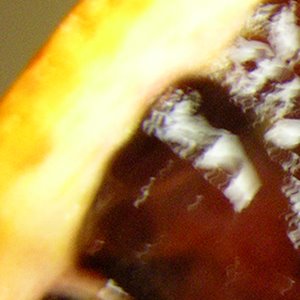What can you learn from a writer’s bio? Publication credits and degrees give a skeletal outline of a writer’s movement through the literary world. From these, you can learn about new places to read and publish and discover new resources. But credentials don’t answer the big question: how do they do it? At Blood Orange Review, we ask all our writers what keeps them moving forward, day to day, with their writing. We’ve been inspired by what they’ve said. We hope you’ll take the time to get acquainted with the writer below and an issue from our archive. Don’t skip the bios! They’re worth reading in and of themselves. We’ll be posting answers to our question throughout the month, so come back and read some more.
Meet Sarah Bonifacio from :Blood Orange Review 3.1:
“I’m not even halfway into the writing life, so I know my answer will change as I mature. Needing to believe Jorge Luis Borges’s claim that 'in this world, beauty is so common' drives me to continue writing poems the way I do, to write them persistently and with the urge to make the everyday and oft-neglected epiphanic. I dwell in surroundings plainer than I’d wish them to be. I don’t know how I’d survive without the sensitivity to respond, by poem, to the small and the sudden: the glint in a fish’s eye, muffled shards of dialogue at a street corner, those 'certain slants of light' that Dickinson spoke of. To write about such moments is to try renewing them; it’s to plead them to be beautiful, to push myself to see them as so for I must see them as so if I’m to keep living. Should poem after poem be completed without my pursuit having ended, this is so only because it is transience itself—to which all human lives are subject, that which is common to us all—that I strive to contain, in the way Odysseus grappled with Proteus. Joyce accomplished this feat in Finnegans Wake and Ulysses. I want to do the same. Only when I do would I quit writing, and be through with life too.”
Meet Ace Boggess from Blood Orange Review 1.2:
“I write poetry to take photographs. When crafting verse, I’m trying to capture an image, a scene or an idea that’s important to me at the time. My poetry books are my photo albums. Through them I can relive those parts of my past and, if I’ve done my job well, share them with others in a way that they can see what I’ve seen or know and understand what was on my mind at a particular moment in time. My notebook is the only camera I have, so if I stopped writing poems, I’d have no tether left to my past.”
Wednesday, March 26, 2008
Subscribe to:
Post Comments (Atom)




No comments:
Post a Comment